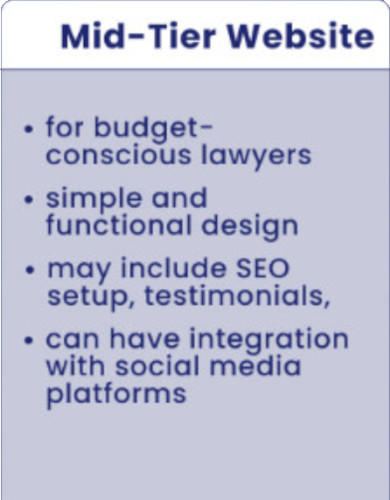Menu
Menu
All articles
Too Many Lawyers Don’t Have Websites
Too Many Lawyers Don’t Have Websites Not having a website can cause a firm to...
Turn Your Web Site into a Selling Site
Most small businesses have a Web site of some kind and many are relying more...
Unique Selling Proposition for Lawyers
Unique Selling Propositions for Lawyers Here are some examples of USPs for lawyers and law...
Website Accessability Guideline per W3C
Website Accessibility per the W3C Web Content Accessibility Guidelines (WCAG) per the W3C Read more...
Website marketing principles
Write better web page content. Use the AIDA marketing principles AIDA is an Italian opera...
Websites for Bankruptcy Lawyers
Websites for Bankruptcy attorneys Did you know that over 30% of people looking for a...
Websites for Criminal Defense Lawyers
Websites for Crimnal Defense attorneys d you know that over 30% of people looking for...
Websites for Employment Lawyers
Websites for Employment and Labor attorneys Did you know that over 30% of people looking...
Websites for Estate Planning Lawyers
Websites for Estate Planning attorneys Did you know that over 30% of people looking for...
Finding clients
No post found
Referral articles
No post found
Website articles
No post found
Examples
No post found



